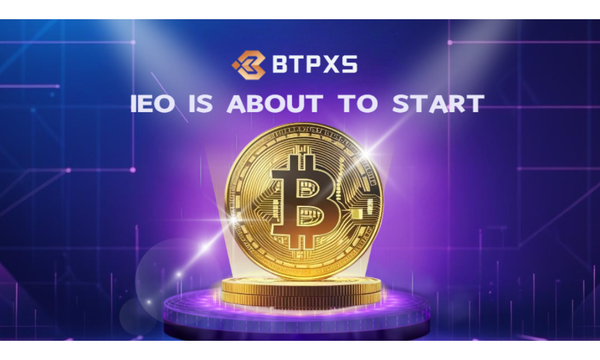The Decentralized Future Is Here: How Bitcoin and Blockchain Are Revolutionizing Industries
The past week saw over $115 million in funding flow into the decentralized finance and cryptocurrency space, signaling the growing momentum and adoption of blockchain technology. Eleven crypto startups raised capital across gaming, custody, infrastructure, healthcare, social media, intelligence, and more, demonstrating the far-reaching potential of decentralization.
Leading the pack was Proof of Play, an on-chain game studio founded by Farmville creator Amitt Mahajan. The startup raised $33 million in a seed round led by Andreessen Horowitz's crypto fund, aiming to build games where "you own your assets, and anyone can create their own game on top of another." Gaming is poised to be one of the killer apps of crypto, with play-to-earn models and true digital ownership through NFTs.
But it's not just gaming seeing surging interest. Custody and infrastructure also saw major investments, with Bastion raising $25 million to provide custody and trading solutions tailored to corporations, and Jiritsu garnering $10.2 million to improve crypto asset management through verifiable computing. Even heavily regulated fields like healthcare are tapping into decentralization, with Briya securing $11.5 million for its blockchain-based data exchange platform.
This overwhelming interest signals that the decentralized future Web3 pioneers have envisioned for years is coming to fruition.
Across industries, innovators recognize the power of open, transparent, decentralized networks to incentivize collective action, align incentives, remove friction, and increase access. Whether in gaming, social media, finance, or healthcare, blockchain's "trustless" approach fosters more efficient coordination.
Coupled with the transparency of open ledgers, decentralization also promotes accountability and community-driven governance -- antidotes to the walled gardens and godlike controls of Web 2's centralized tech giants.
By distributing power among network participants, blockchain-based models circumvent monopolistic data silos and rent-seeking middlemen. Value accrues to creators and users, not platform owners.
Of course, decentralized apps aren't without their own challenges. Scalability, usability, regulation -- these hurdles remain. But with over $115 million deployed this past week alone, some of crypto's sharpest minds are on the case.
If digital assets help align incentives around building open networks, and blockchains enable transparency and automation, the path ahead looks bright.
This Cambrian explosion of crypto innovation is about more than just wealth creation or speculating on coins. It's about the technology's potential to transform industries from the roots up -- to reshape how we coordinate, transact, and generate value.
So where does Bitcoin fit into this next-gen landscape? As the original decentralized digital money, Bitcoin represents the financial bedrock for the coming decentralized economy. Its hardness and neutrality make it ideal for value storage and exchange between applications.
Much as HTTP provides the foundational data transfer layer for today's Internet, Bitcoin offers a base monetary layer for the Web3 world being born.
Anchored by a truly scarce, digital bearer asset in Bitcoin, decentralized finance can blossom into a more equitable and open system than today's walled garden banking economy.
Of course, legacy institutions will resist this shift -- just as taxi companies fought ride-sharing startups like Uber and Lyft. But open networks create value for their users, so network effects take hold. Bitcoin and blockchain are here to stay.
The decentralized future has arrived. The only question now is how fast humanity will build it.
Is decentralization sustainable long-term?
Decentralization is absolutely sustainable long-term for several key reasons:
- It aligns incentives. By distributing control and ownership, it incentivizes participants to contribute to and improve the network. This creates positive feedback loops and network effects.
- It leverages competition and wisdom of crowds. Rather than concentrating power, it allows diverse perspectives and experimentation to co-exist, improving resiliency.
- It lowers barriers to entry. Permissionless participation fosters more innovation and wider usage than closed, proprietary networks.
- It enables transparency and accountability. Records on public blockchains are immutable and auditable, keeping systems honest and efficient.
- It facilitates coordination and collaboration. Setting clear rules upfront automates governance and cooperation at global scales.
Of course, decentralization isn't a panacea. Issues around scalability, security, and usability remain. But the transparency and open participation it enables create checks and balances that make manipulation and misconduct more difficult. As blockchain technology matures, its decentralized foundations will only grow stronger.
What are the parallels between the crypto revolution and other major technological shifts?
There are striking parallels between the crypto revolution and previous technological shifts like the Internet and personal computing:
Parallels with the Internet:
- Both expand access to information, services, and commerce through open network technologies
- Both face initial skepticism and resistance from incumbent interests and institutions
- Both enable new business models, applications, and ways of socializing/coordinating
- Both foster user-generated content, cultures, and communities
Parallels with personal computing:
- Both give users direct control over an aspect of their lives previously managed institutionally
- Both are driven by a culture of hobbyists, tinkerers, and builders
- Both require learning curves and behavior changes in adoption
- Both enable more customization, personalization, and creativity
In essence, crypto, like the Internet and PC revolutions, decentralizes power. Where institutions, platforms, and gatekeepers once mediated access, now users can connect peer-to-peer. This disintermediation shifts control, value, and ownership to the edges - to creators and communities. Of course, realizing this potential takes time - but the parallels suggest crypto's decentralized future is bright.




